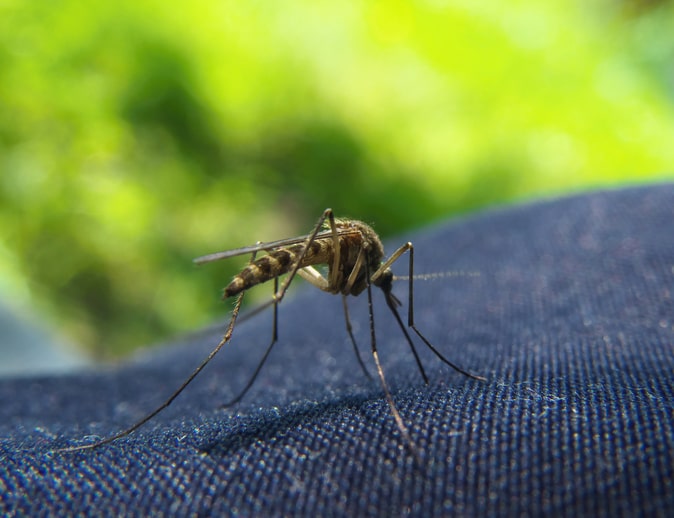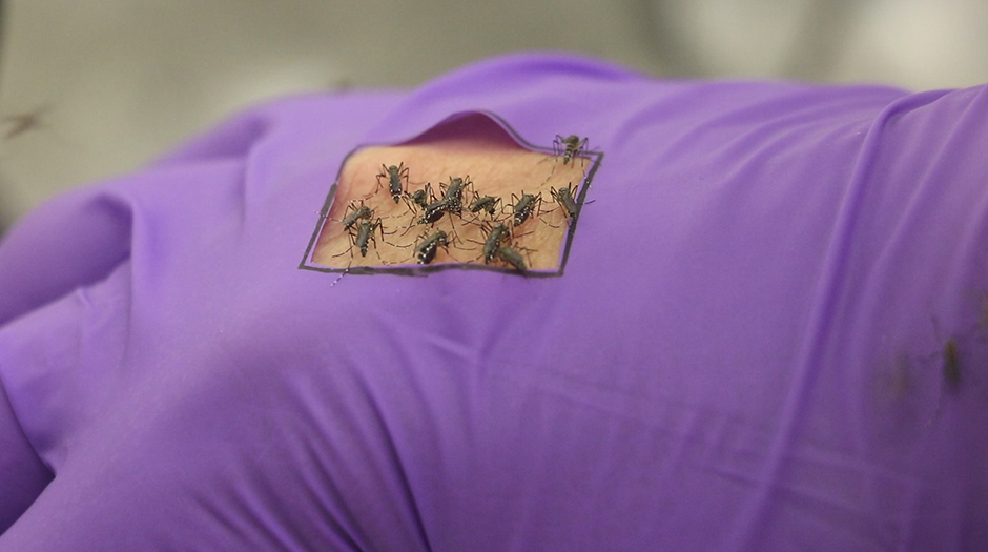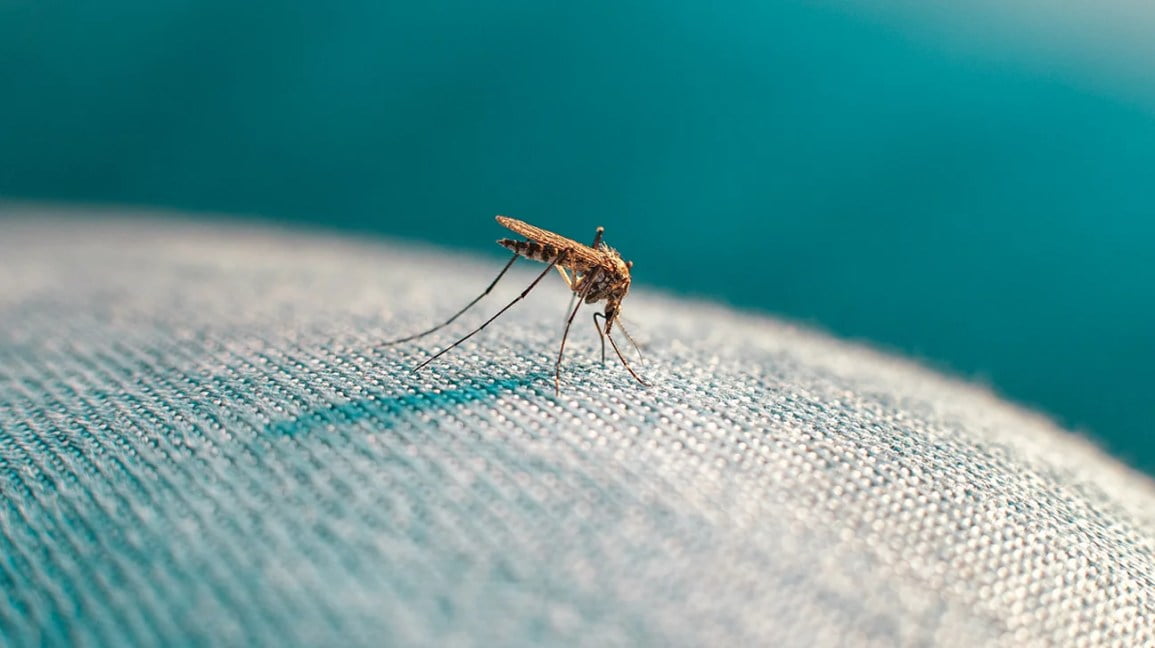Mosquitoes can bite through clothes because their sharp mouthparts can easily pierce thin fabrics. Fabrics like denim, nylon ripstop, and tight-knit wool are difficult for mosquitoes to penetrate.
While mosquitoes prefer exposed skin, they can still pierce through covered areas to access blood vessels. Thicker, sturdier fabrics provide better protection, but in hot climates, it’s not always practical to wear them. Mosquitoes have six needle-like mouthparts that can easily pierce through thin or loosely knit materials, making it crucial to choose appropriate clothing to prevent mosquito bites.
By understanding how mosquitoes bite through clothes, you can take proactive steps to protect yourself from these pesky insects.

Credit: www.mccallservice.com
The Hidden Mechanics
When it comes to avoiding mosquito bites, wearing clothes is often considered a practical defense. However, many people wonder if mosquitoes can bite through clothes. The hidden mechanics behind this phenomenon are fascinating and worth exploring.
Mosquitoes’ Sharp Tools
Mosquitoes possess an array of sharp tools that enable them to pierce through various materials, including clothing. Their mouthparts, known as the proboscis, are equipped with tiny, serrated needles that can effortlessly penetrate fabric fibers, allowing them to reach the skin beneath.
A Closer Look At The Proboscis
The proboscis consists of six elongated parts, each serving a specific function in the blood-sucking process. These parts work in tandem to create an opening in the fabric, making it possible for the mosquito to feed on the blood of its victim. The mechanics of the proboscis enable mosquitoes to bypass clothing barriers and access the skin.

Credit: www.ecoguardpestmanagement.com
Fabrics At Risk
Mosquitoes can bite through clothes because their long, sharp mouthparts can easily pierce thin or loosely knit materials. Fabrics that are thick, tightly-woven, or constructed with overlapping layers, such as denim, nylon ripstop, and tight-knit wool, are difficult for mosquitoes to bite through.
When it comes to protecting ourselves from mosquito bites, we often rely on our clothing to act as a barrier. However, not all fabrics are created equal when it comes to keeping those pesky insects at bay. Understanding which fabrics are more susceptible to mosquito bites can help us make informed choices when it comes to our wardrobe.
Thin Vs. Thick Materials
One of the key factors that determine a fabric’s susceptibility to mosquito bites is its thickness. Thin, loosely-knit materials provide little resistance against the sharp mouthparts of mosquitoes, making it easier for them to pierce through and reach our skin. Fabrics such as cotton and linen, which are often lightweight and breathable, fall into this category.
On the other hand, thick and tightly-woven materials create a more formidable barrier against mosquito bites. Fabrics like denim, nylon ripstop, and tight-knit wool are difficult for mosquitoes to penetrate, offering better protection against their bites. So, if you’re looking to minimize the chances of mosquito bites, consider opting for clothing made from these materials.
Fabrics Mosquitoes Love
While some fabrics may be more resistant to mosquito bites, there are certain fabrics that mosquitoes seem to love. It’s important to be aware of these fabrics to avoid inadvertently attracting these blood-thirsty insects.
- Synthetic materials: Mosquitoes are attracted to synthetic materials like polyester and rayon, possibly due to the heat and moisture they can trap against the skin.
- Dark-colored fabrics: Dark-colored clothing tends to absorb more heat, making it more appealing to mosquitoes.
- Loose-fitting garments: Loose-fitting clothing creates gaps and crevices where mosquitoes can easily access the skin, increasing the likelihood of bites.
To minimize the risk of mosquito bites, it is best to opt for light-colored, tightly-woven fabrics that provide a physical barrier against these insects. Additionally, wearing long sleeves and pants can provide extra protection, especially in areas with a high mosquito population.
By understanding which fabrics are at risk and which fabrics mosquitoes love, we can make informed choices about our clothing to help minimize the chances of getting bitten. Remember, prevention is key when it comes to protecting ourselves from mosquito-borne diseases, so choose your fabrics wisely!
The Science Of Biting Through
Mosquitoes have a remarkable ability to bite through clothing, leaving us vulnerable to their itchy bites. Understanding the science behind this phenomenon can help us take preventive measures to protect ourselves.
How Fabric Weave Affects Penetration
The tightness and type of fabric weave play a crucial role in determining whether mosquitoes can bite through clothes. Fabrics that are loosely woven or thin provide little resistance to a mosquito’s proboscis, allowing them to penetrate and reach the skin beneath.
Mosquitoes Vs. Different Textures
Mosquitoes encounter varying levels of difficulty when biting through different fabric textures. For instance, lightweight materials like cotton are easily pierced by a mosquito’s sharp mouthparts, whereas denser fabrics such as denim or nylon ripstop offer better protection against mosquito bites.
Protection Strategies
Mosquitoes can be persistent biters, even managing to penetrate clothing to reach your skin. Implementing effective protection strategies is crucial in warding off these pesky insects.
Choosing The Right Fabrics
Opt for fabrics that are thick, tightly-woven, or layered to create a barrier against mosquito bites. Some materials that mosquitoes find difficult to penetrate include:
- Denim
- Nylon ripstop
- Tight-knit wool
Layering For Defense
Layering clothing can provide an extra level of protection against mosquito bites. By wearing multiple layers of clothing, you create a physical barrier that makes it harder for mosquitoes to reach your skin.
Natural Deterrents
Mosquitoes have a half-dozen long, sharp mouthparts that can easily pierce through thin or loosely knit materials. However, fabrics that are thick, tightly-woven, or have overlapping layers, such as denim, nylon ripstop, and tight-knit wool, are difficult for mosquitoes to bite through.
Plants Mosquitoes Hate
When it comes to natural deterrents for mosquitoes, certain plants are known to repel these pesky insects. Incorporating these plants into your landscaping can help create a mosquito-free environment. Some of the plants that mosquitoes hate include:
- Lavender
- Citronella
- Lemongrass
- Mint
- Marigold
These plants contain strong scents that mosquitoes find repulsive, making them an effective addition to your outdoor space to keep mosquitoes at bay.
Essential Oils For Repelling
In addition to plants, essential oils are another natural deterrent that mosquitoes dislike. These oils can be used in various ways to repel mosquitoes. Some of the essential oils that are known to repel mosquitoes include:
- Citronella oil
- Peppermint oil
- Lemon eucalyptus oil
- Lavender oil
- Tea tree oil
You can create your own mosquito repellent spray by diluting these essential oils with water or a carrier oil and spraying it on your skin or clothing. Alternatively, you can use essential oil diffusers or candles to disperse the scent in your outdoor area.
By utilizing these natural deterrents, you can reduce the chances of getting bitten by mosquitoes. Incorporating mosquito-repelling plants and essential oils into your surroundings can create a hostile environment for these annoying insects, allowing you to enjoy your time outdoors without the constant buzzing and itching.
Technological And Chemical Barriers
Mosquitoes are relentless pests that can bite through clothing, leaving itchy and irritating bites. However, technological and chemical barriers can provide protection against these pesky insects.
Insect-repellent Clothing
Insect-repellent clothing is specially designed to deter mosquitoes and other biting insects. These garments are treated with insecticides that repel or kill the mosquitoes on contact, preventing them from penetrating the fabric.
The Role Of Permethrin
Permethrin is a synthetic insecticide that is commonly used to treat clothing, gear, and mosquito nets. When applied to fabric, permethrin acts as a powerful insect repellent, effectively deterring mosquitoes and other insects from landing on or biting through the treated material.
Personal Experiences
Mosquitoes can bite through clothes due to their sharp mouthparts easily piercing thin fabrics. While thicker, tightly-woven materials offer better protection, mosquitoes can still penetrate exposed skin under clothing. Thicker fabrics are more effective but may not be practical in hot climates like Florida.
Stories Of Unexpected Bites
Personal experiences with mosquito bites can vary widely. Some people have never been bitten, while others seem to be a mosquito magnet. For those who are frequently bitten, it can be frustrating to try and figure out why. One common experience is getting bitten through clothing, even when it seems like there should be a barrier of protection.Learning From The Field
Scientists have been studying mosquitoes for years to try and understand their behavior and feeding habits. What they have found is that mosquitoes are incredibly adept at finding and biting their prey. They can sense carbon dioxide from up to 50 meters away and are attracted to heat and movement. This means that even if you are wearing clothing that is difficult for them to bite through, they may still be able to find their way to exposed skin.Protecting Yourself
So what can you do to protect yourself from mosquito bites? One option is to wear clothing that is made from tightly woven materials, such as denim or nylon ripstop. This can make it more difficult for mosquitoes to bite through the fabric. You can also use insect repellent on exposed skin to help deter mosquitoes from biting. And if you are going to be spending time outdoors, it is a good idea to wear long-sleeved shirts and pants to minimize the amount of skin that is exposed.Overall, while it may be frustrating to get bitten through your clothing, there are steps you can take to protect yourself from these pesky insects. By understanding how mosquitoes operate and taking preventative measures, you can enjoy the outdoors without worrying about getting bitten.
Credit: engineering.brown.edu
Future Innovations
Discovering why mosquitoes can bite through clothes unveils their intricate mouthparts designed for blood-sucking efficiency. Their sharp proboscis easily pierces thin fabrics, making tight-knit materials a barrier against these pesky insects. Understanding their biology can help in choosing the right clothing for protection.
Emerging Technologies
The future of mosquito bite prevention may lie in emerging technologies. One such technology is the use of mosquito-repellent fabrics. Researchers are currently developing textiles that are impregnated with mosquito-repellent chemicals, such as DEET and permethrin. These fabrics could offer long-lasting protection against mosquito bites, even in areas with high mosquito populations.Another emerging technology is the use of wearable devices that emit high-frequency sound waves to repel mosquitoes. These devices use ultrasound technology to create a sound barrier that mosquitoes cannot penetrate. While the effectiveness of these devices is still being studied, they could offer a non-toxic alternative to chemical repellents.Next-gen Fabrics
In addition to mosquito-repellent fabrics, researchers are also working on next-generation fabrics that are specifically designed to prevent mosquito bites. These fabrics may be made from natural or synthetic fibers that are tightly woven or layered to create a barrier that mosquitoes cannot penetrate.One such fabric is known as “mosquito netting fabric.” This fabric is made from a specially designed mesh that is so fine that mosquitoes cannot pass through it. It is commonly used in mosquito netting for beds and other outdoor areas.Another next-gen fabric is being developed by researchers in Australia. The fabric is made from a blend of cotton and nylon that is tightly woven to prevent mosquito bites. This fabric is also treated with a mosquito-repellent chemical for added protection.As mosquito-borne illnesses continue to be a major public health concern, researchers are working tirelessly to find new ways to prevent mosquito bites. Emerging technologies and next-gen fabrics offer promising solutions for protecting against mosquito bites, even in areas with high mosquito populations. By staying up-to-date on the latest developments in mosquito bite prevention, we can all do our part to stay safe and healthy.Frequently Asked Questions
What Smell Do Mosquitoes Hate The Most?
Mosquitoes hate the smell of citronella, peppermint, cedar, catnip, patchouli, lemongrass, and lavender. Planting these scents in your landscaping can help repel mosquitoes. Additionally, mosquitoes have difficulty biting through thick, tightly-woven fabrics like denim, nylon ripstop, and tight-knit wool.
Is There A Material That Mosquitoes Cannot Bite Through?
Thick, tightly-woven, or layered fabrics like denim, nylon ripstop, and tight-knit wool can make it difficult for mosquitoes to bite through.
Will Mosquitoes Bite Through Clothing?
Yes, mosquitoes can bite through clothing, especially thin and loosely knit fabrics. Opt for thicker, tightly-woven materials like denim, nylon ripstop, and tight-knit wool to protect yourself.
Conclusion
To sum up, mosquitoes are notorious for being able to bite through clothes. This is because their long, sharp mouthparts can easily pierce through thin or loosely knit fabrics. However, fabrics that are thick, tightly-woven, or have overlapping layers can be more difficult for mosquitoes to bite through.
Additionally, natural scents such as citronella, peppermint, and lavender can also help ward off these pesky insects. By taking these precautions, you can better protect yourself from mosquito bites and their potential diseases. Stay safe and enjoy the outdoors!
Related posts:

I’m MD Tanvir, and I bring years of expertise gained from working closely with pest control companies to the forefront. My journey in the industry has inspired me to launch Bug Battler, a platform aimed at equipping people with the know-how to combat pests autonomously. Through Bug Battler, I aim to empower individuals with practical insights to tackle pest infestations effectively.

